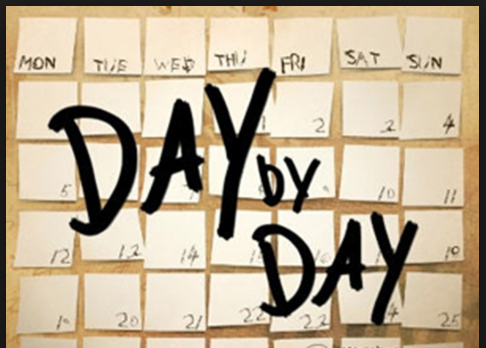Operation Inspiration By Rabbi Jonathan Gewirtz
Between Pesach and Shavuos, we observe the ‘counting of the Omer.’ Though we don’t bring the Korban Omer on the second day of Pesach nowadays since we don’t have a Bais HaMikdash, we nevertheless count the 49 days in between the two festivals.
Also during this period, we maintain a certain amount of mourning in memory of the loss of R’ Akiva’s students. Over the course of thirty-three days, his 12,000 pairs of students died because, as Chazal tell us, “They didn’t treat each other with proper respect.” While it’s hard to imagine that these students were rude to each other, it’s possible that they didn’t sufficiently recognize the greatness in each other and thereby fell short.
It is well known that Rav Saadya Gaon, head of the Academy of Sura, would do Teshuva every day. He explained, “Today I have come to a new recognition of the greatness of Hashem, thus I realize that I did not serve Him properly yesterday. Therefore I must repent for not recognizing His greatness and not according Him the honor and service He deserves.”
Presumably, this was the same sort of failure of the talmidim of R’ Akiva – they simply didn’t appreciate something more about their fellow students each day and fell short of the honor they accorded each other.
As part of the mourning for these students and to get a sense of the magnitude of the loss, we don’t listen to music, cut our hair, or get married during the observance of Sefira. There are different customs as to when in the 49 day period to observe the 33 days of mourning, and one may change his custom annually if his community does not have a single, set observance.
In addition, even if one is observing the mourning period, he may attend a wedding made by his friend who is not observing at that time. This happened to me and I participated in a wedding made by the fellow who gives our gemara shiur after davening each day.
While there, I spied a fellow who is known in the community because he is the Menahel/Dean of a local Yeshiva day school. I know him because he was my camp counselor when I was thirteen years old. For years when I’ve seen him, I’ve felt an affinity towards him because of our shared connection. I’ve felt like I had a special connection that others didn’t. At least, until that night.
As I approached from across the room, it dawned on me that I didn’t really have anything to say to him. Since the four weeks he was assigned to look after me so many years ago, we haven’t been in communication. I don’t really know him; I don’t know what type of person he is, and I can’t personally attest to his fine character traits or his proficiency in Torah. I suddenly felt very distant from him.
Instead of cultivating an ongoing relationship from what began with such a robust link and creating a lifelong friendship, I was satisfied that we were good friends because of a one-time bond which, as I now realize, was rather shallow to begin with.
In that moment, I extrapolated from that insight to a much scarier relationship faux pas. It’s one thing to think you’re close to a person you knew when you were thirteen and only years later to realize that you failed to invest in maintaining that connection. It’s a much bigger deal when you wake up and realize that your connection to Hashem is almost entirely based on a short-term devotion when you were thirteen years old. Yet, so many people peak at Bar Mitzvah age and don’t progress past that in their Judaism. Even if they are keeping the Torah and Mitzvos, their understanding of Hashem hasn’t changed much since they were kids.
Every Pesach we retell the story of the plagues in Egypt and the redemption from that land. If a man of sixty looks at the story of Mitrzayim just as he did when he was six, then he’s missing so much depth and insight into the way Hashem punished the Egyptians and brought us out to be His people. What he should be doing is learning new things each day, appreciating more about Hashem, and growing in his awareness and closeness to his Creator.
During Sefira we count up because we understand that each day is intended to lift us to a higher plane of understanding than we were on the previous day. Failure to do so should make us regretful, as R’ Saadya was. What we don’t want to have happen is that we arrive at Shavuos, when we are to be united in ‘marriage’ to Hashem, and find that we don’t really know the groom. We’re not aware of His greatness and not cognizant of His kindness. We don’t want to look back on the days and weeks of our lives feeling bad that we never grew the closeness we could have had.
It’s a lesson for how we interact with Hashem, but also with people, who are created in the image of G-d and with whom we are meant to build bonds and friendships and loyalty. Perhaps this is why the students of R’ Akiva are remembered at this time: so we will hopefully learn the lesson that just might have saved their lives.
© 2019 – All Rights Reserved
Did you enjoy this column? Feedback is welcome and appreciated. E-mail info@JewishSpeechWriter.com to share your thoughts. You never know when you may be the lamp that enlightens someone else.






